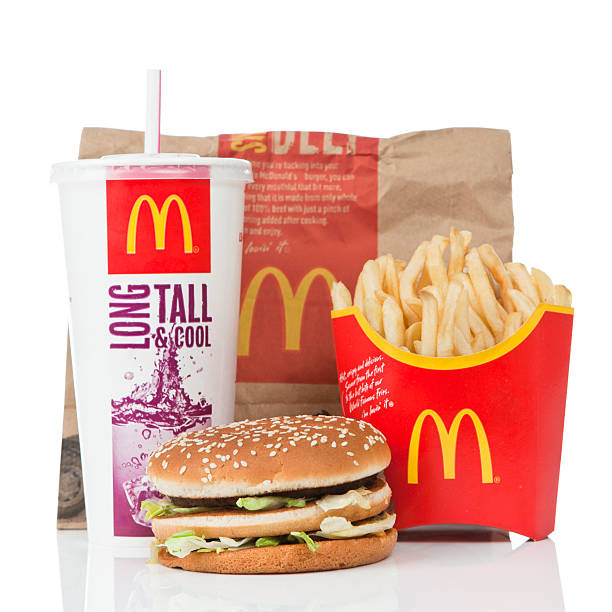Unpopular opinion: McDonald’s can actually support weight-loss goals if you make the right choices. If you choose food items that are high in proteins, low in carbs and in sensible portion sizes, you can enjoy a meal at MCD’s without jeopardizing your health and fitness goals.
What to Order for Weight Loss at McDonald’s
OK so let’s get right down to it. What should you order at McDonald’s if you’re trying to lose weight?
The answer: classic burger + apple slices + unsweetened iced tea.
A basic McDo burger will give you protein and some carbs without the extra calories from cheese or mayo. Instead of fries, order apple slices to add fiber and natural sweetness to your meal without the extra sugars or fats. And rather than ordering a large soda, get an unsweetened iced tea which has zero calories.
Why It’s a Healthy Lunch Order for Weight Loss
I go to McDonald’s every week and I know for a fact that getting a meal under 300 calories is quite an achievement. Unlike sit-down restaurant food which is prepared with healthier ingredients, with fast food chains, most menu items are high in fact, high in carbs and high in sodium.
Fortunately, the most basic McDonald’s burger has fewer calories than larger sandwiches or combo meals but still provides a decent amount of protein.
Protein is essential for weight loss as it helps you feel full and satisfied and reduces the likelihood of snacking on high-calorie treats. It also boosts metabolism slightly because it requires more energy to digest than fats or carbs. Although the metabolic increase isn’t as high as from intense exercise, every bit helps when you’re aiming for weight loss, right?
The Importance of a Low-Fat Diet for Weight Loss
Many experts recommend low-fat diets for weight loss. Fat provides 9 calories per gram, while protein and carbohydrates each provide only 4 calories per gram. When you reduce your fat intake it can definitely help lower your overall calorie intake.
Moreover, high-fat foods are often less filling and easier to overeat with. By choosing lower-fat options, you can increase the volume of food you eat without consuming too many calories.
TikTok User’s Surprising Weight Loss Strategy Sparks Debate
One TikTok user Kevin Maginnis is creating quite a buzz with his unconventional approach to weight loss. The 56-year-old business coach from Nashville decided to deal with his weight issues by exclusively eating McDonald’s for a hundred days. Weighing in at 238 pounds, Maginnis announced his unique plan to consume not one or two but THREE McDonald’s meals daily.
In a viral TikTok video, Maginnis expressed his dissatisfaction with his current weight, labeling it “absolutely unacceptable.” His strategy involves cutting down portions by eating just half of each McDonald’s order.
He started this challenge on February 21 and shared an update on the TODAY show on March 2, where he revealed he lost 12.5 lbs and an increase in his motivation.
“I believe I’ll be down 50 pounds by the end, my health will be better, my bloodwork will be better. If you don’t believe me, follow along.”
Experts Weigh in on the McDonald’s Diet
Registered dietitian Frances Largeman-Roth weighed in on Maginnis’ unusual diet and acknowledged that weight loss is possible while eating fast food but emphasized that it’s not just about calorie restriction.
“While this plan seems to be working for Kevin right now, the weight loss will eventually plateau. He will need to incorporate physical activity or make additional dietary changes to continue losing weight,” she explains.
“Health isn’t just about the number on the scale; it’s also about cardiovascular health and other measures.”
Maginnis is missing out on key nutrients that are vital for reducing the risk of heart disease, colon cancer, stroke, and diabetes, Largeman-Roth warns. “Plus, even though Kevin is halving his meals, he’s still consuming well over the recommended 2,300 milligrams of sodium daily. A bacon, egg, and cheese biscuit contains 1,330 milligrams of sodium, and a Big Mac has over 1,000 milligrams without ketchup or mustard,” she explains.
Before anyone attempts a diet similar to Maginnis’, she advises considering long-term health objectives and the potential impact of daily fast food consumption.
